What are Learning Management Systems (LMS)?
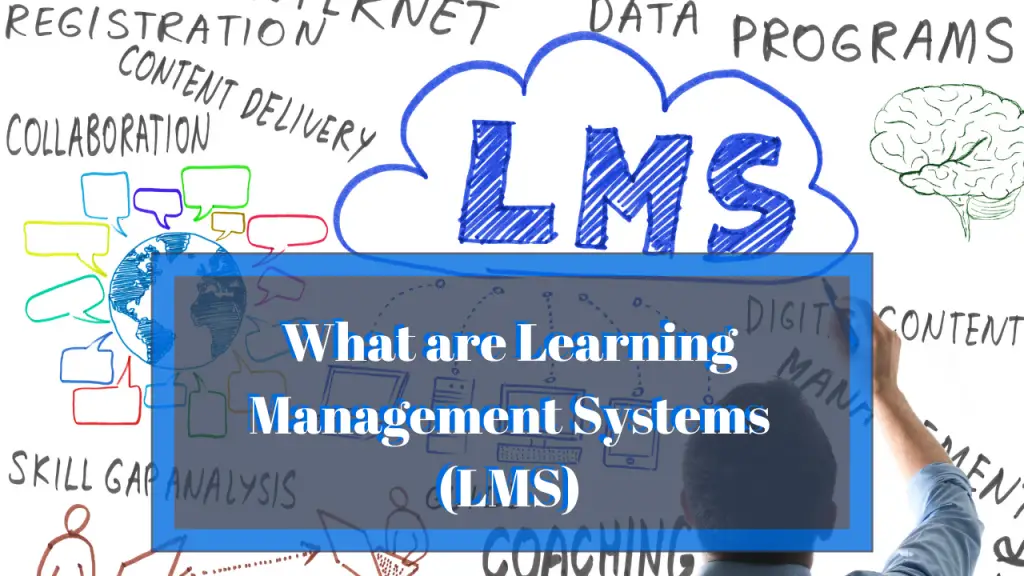
Learning management systems (LMS) are software applications that provide the framework for the creation, management, and delivery of online educational courses.
As someone who has benefited from using learning management systems, I can say with certainty that they are great. I have always been a fan of learning so software that allows users to access top-tier education is always welcomed.
For this article, I used my past experience using LMS and hours of research to put together a basic breakdown of Learning Management Systems. The goal is to give you all the information you might need to decide if using a learning management system is for you.
Table of Contents
What are Learning Management Systems (LMS)?
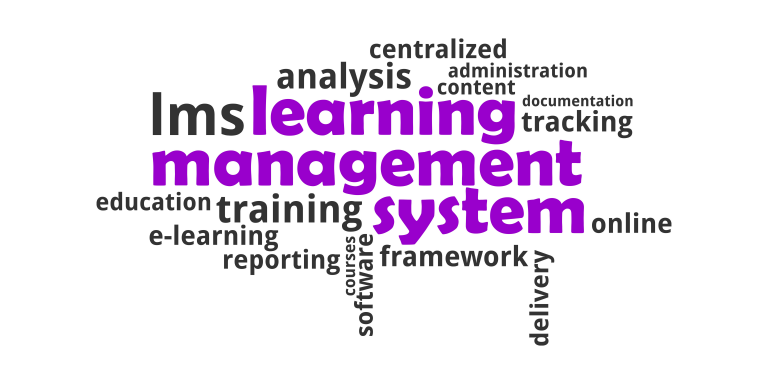
Learning management systems (LMS) are a necessary component of any successful training or education program. They are software applications that provide the framework for the creation, management, and delivery of online educational courses or training programs. Learning Management Systems are a great way to deliver training materials in various settings, from online courses to live sessions such as webinars.
A learning management system has two parts: an admin interface where instructors can do the work necessary to manage their learning programs, and a user interface where the learners can access courses when enrolled.
The use of LMS has dramatically increased because of the COVID-19 pandemic.
Who can use a Learning Management System?

That is simple, anyone who wants to distribute educational materials or improve their skills can use an LMS.
LMS can be used by both individuals and organizations, big or small. Are you a teacher who does freelance work? Great, you can use an LMS to create online lessons to share with your students. Do you have a small consulting agency? No problem, you can use an LMS to train employees and give customers useful information.
Learning management systems can serve a wide variety of training and educational needs.
There are two types of LMS users: administrators and learners.
Administrators: These can be teachers, training instructors, or organization managers. They are responsible for course management, content creation (creating training courses and learning plans), organizing learners to specific courses, and tracking learner performance.
Learners: These can be students from educational institutions, trainees, employees, or customers of an organization. Learners are the ones taking the courses and are on the receiving end of the learning process. They have access to the course catalog and can complete assigned courses along with evaluations.
What are Learning Management Systems used for?

Learning management systems can be used for a variety of learning activities.
Here are some uses for LMS:
Employee Onboarding: Employee onboarding is an important process for new staff members to have a good footing when starting out. This can be achieved efficiently through the use of a learning management system.
Employee Training: By using LMS you can cut costs for employee training while improving its quality at the same time. No need to deal with the logistical nightmare of bringing in a specialized instructor for a training conference. Now everything can be done with a high-quality pre-recorded lesson or a live session on the platform.
Compliance training: If you are in an industry where regulatory compliance is a big deal you have to ensure that your employees are well informed. Learning management systems can be used for all required and recurring training, as well as facilitate certification requirements within your organization with ease.
Support Traditional Education: LMS provides support for traditional face-to-face schooling and as the world becomes more digital, they will become necessary for schools. Learning management systems can be used in all aspects of the educational process, from planning courses and assessments for students to monitoring their performance over time so educators know how well they are doing over the course of the semester.
Improve Sales: Learning management systems can help sales by providing training materials and information on the latest products and services to your sales team.
Benefits of Learning Management Systems

There are many different advantages of using Learning management systems, both for businesses/schools and the users.
Here are some advantages for businesses/schools:
Reduce Training Cost: A learning management system can help to trim training expenditures. You can dedicate your resources to developing a comprehensive training course instead of organizing a face-to-face training event.
Reduce Onboarding/Training Time: With an LMS, you can easily share information and train your staff. No need to spend time organizing training conferences, all that is needed is to enroll your employee and they will be able to access the content easily at any time. This will speed up the learning curve for new employees.
Track Learning Progress: LMS platforms take a number of different approaches to provide feedback and evaluation, including metrics for user engagement and performance on tests and assignments (for students). As an instructor/teacher you will have access to this information so you can assess the users’ performance and give assistance where needed.
Remote Training: With LMS you involve remote employees or students in the training or learning process. This way no one will be missing out on any valuable information. All users need to gain access to the course will be an internet connection and login credentials.
Here are some advantages for learners/students:
Skill Development: Users will be able to learn new skills that are essential for the job or class along with other skills that are not directly related but will help them to be more well-rounded team members and students.
Remote Learning: LMS provides learners with flexible training programs that they can take anywhere and at anytime. This is great for employees with busy daily schedules, instead of the training exercises affecting peak work hours productivity they can do the courses at a more appropriate time when it will not disrupt the workflow.
Knowledge Retention: With LMS learners have the opportunity to better understand and retain information than with traditional forms of learning. In the case of prerecorded videos, learners have the option to pause, replay and revisit lessons to ensure that they understand the concepts. If it is a case where they need additional assistance they can visit the discussion forums.
Features of Learning Management Systems

Let us take a look at the different features learning management systems have to offer.
Course and User Management: Learning management systems are great for helping instructors/teachers plan and organize courses. They have tools that allow them to add text, images, videos, or pdfs as well as set interactive tests and slideshows which makes it easier for trainees/students. LMS helps instructors/teachers to track student progress and build rapport with them through contact tools. They also ensure that only the relevant content is accessible to each individual.
Gamification: This is an effective way to engage learners, allowing them to earn points and awards for learning activities. Instructors can format tests in the form of games making the learning process more exciting and interactive.
Self-paced and Group Learning: With Learning Management Systems, students can choose to learn in an asynchronous fashion with content that is available on-demand and self-paced such as pre-recorded videos or they may engage through synchronous mediums such as webinars.
User Feedback and Discussion Forums: Using a learning management system, teachers are able to create discussion groups for their students’ feedback and provide more interactive opportunities within courses. This allows them to improve the course by identifying what should be added/removed based on individual needs and group needs.
Learning Analytics: As mentioned before LMS allow administrators to track user progress, the tracking process can gather information on the completion rates along with course performance and attendance. With this information, admins can have a better understanding of the strong and weak points within their organization or classroom.
Types of Learning Management Systems
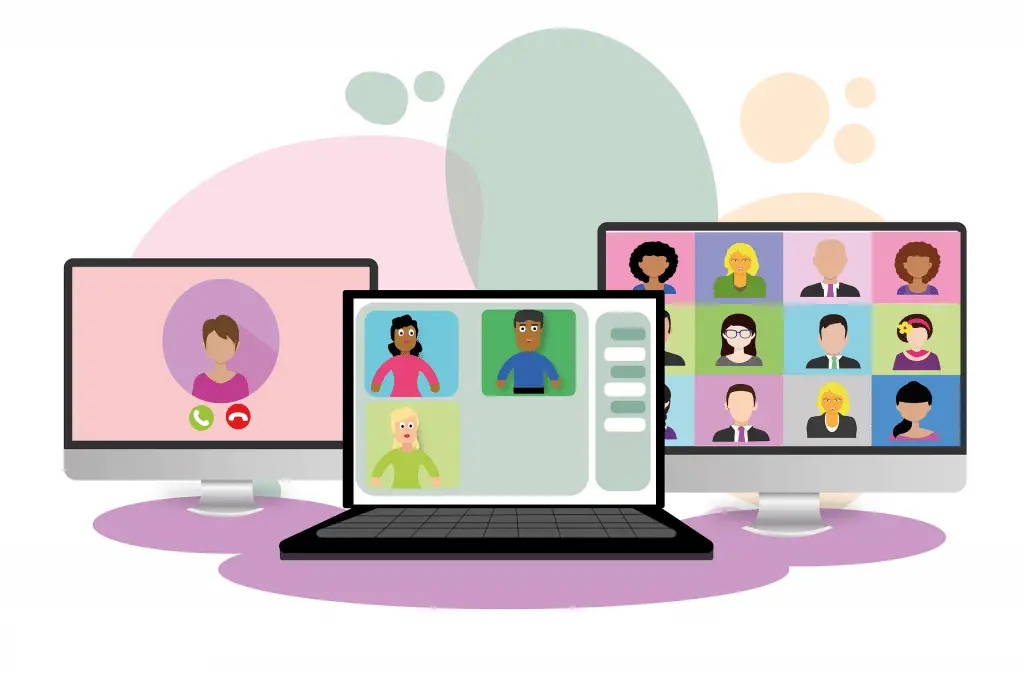
Web-based LMS: These types of LMS work primarily through a browser and are offered by a third party under a Software as a Service(SaaS) model. They are easier to use as an administrator and require little to no technical expertise. The creators of the software will be responsible for all technical aspects of the LMS like the updates and monitoring the server, all you need to focus on is create and manage your course.
They provide a scalable and affordable platform, many offer different tiers of subscription plans so you can start out small and grow as your audience increases. Web-based LMS is ideal for individuals and small businesses.
Locally-hosted LMS: Locally hosted LMS are sold as licensed products and are hosted on your own server and maintained by your own IT department (or you, if you are tech-savvy enough). These usually follow the opens source model meaning all the technical requirements to keep the LMS up and running will be up to you. You will have to monitor the server, ensure all your data is properly stored, and upgrade the software when necessary.
With all these responsibilities comes some additional freedom to customize the learning management system. A locally hosted LMS will give you the extra flexibility to make changes to the platform in the form of new features and integration with your own tools.
Examples of Learning Management Systems
Here are some examples of the more popular LMSs that are currently available on the market:
Moodle: Moodle is a robust, secure, and integrated learning platform designed to provide educators and administrators with the tools they need in order to create personalized educational environments for their students. You can download it onto your web server or mobile device free of charge.
With Moodle, you can manage grading activities, assign courses to categories, create PowerPoints, PDFs, and videos, track course enrollment and so much more.
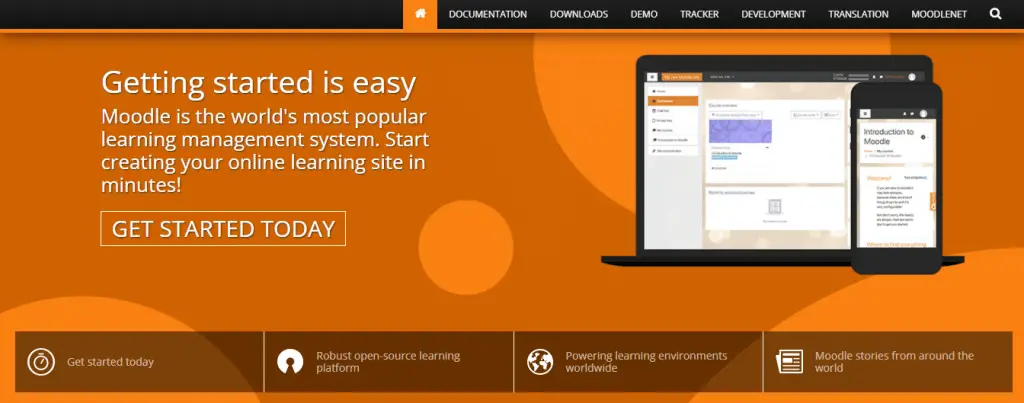
Canvas: This is a web-based learning management system that was engineered to easily be scalable. Canvas can be used by educational institutions of all sizes and types, ranging across individual classrooms to large universities with fully virtual or blended classes.
Canvas LMS offers a complete and customizable learning environment that can be tailored to each student’s needs. The platform supports features such as a grade book, bulk user actions, self-registration, build in authoring tools, assignment engines, attendance and enrollment tracking, and many more.

Blackboard Learn: Blackboard Learn is a learning management system that provides a web-based environment for your courses, as well as the tools you need to organize and run those courses. In addition to supporting educational content, Blackboard Learn also enables instructors to easily manage student activities such as delivering assessments and evaluations, tracking student enrollment, retention, and engagement (Blackboard Intelligence), and allowing group collaboration (Blackboard Collaborate).
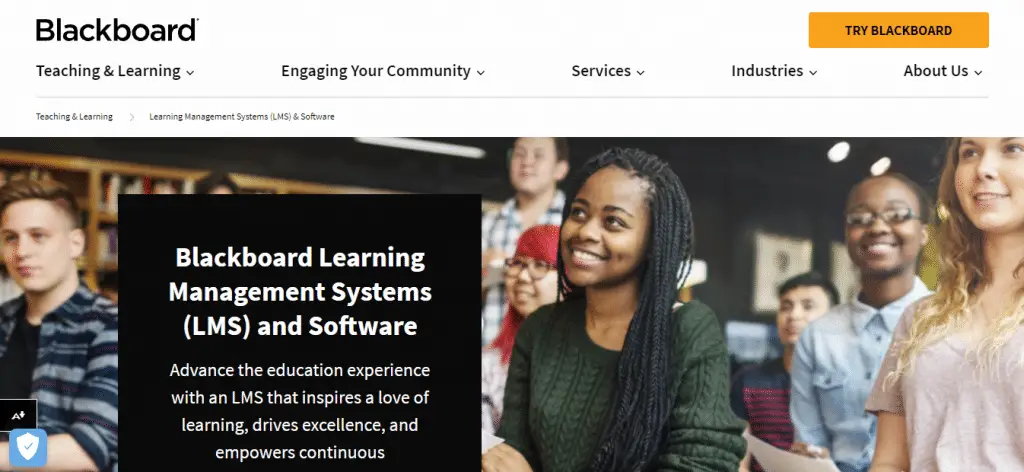
Schoology and Chamilo, are Open Source LMS designed to be easy to use and fast. They offers powerful features such as certificate generation, skill management, course cataloging as well as supporting Application Programming Interface (API). Additionally, Chamilo can accommodate over 3,000 learners simultaneously, capable of supporting 25+ languages, and even offers a course shopping cart that exposes learners to courses related to their interests.
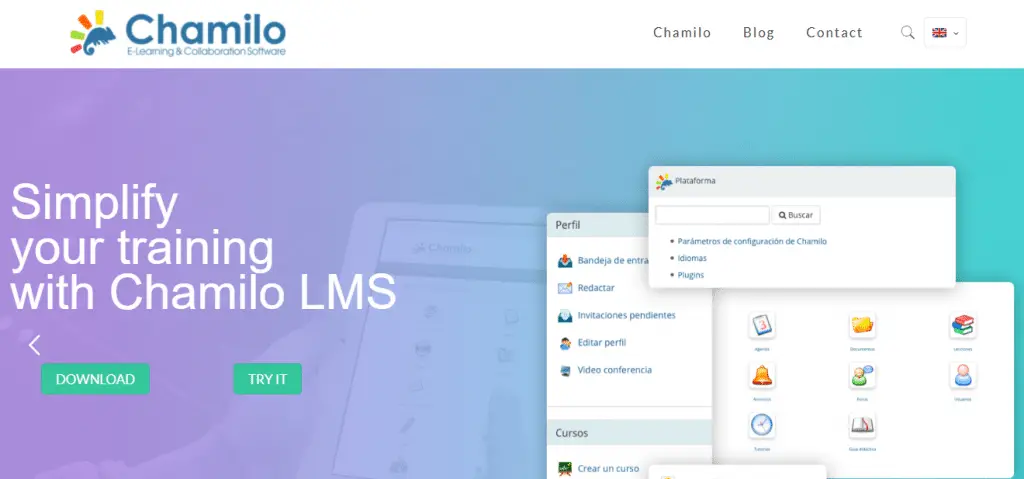
Wrapping Up
Learning management systems are becoming more popular as a way to help businesses train their employees and schools to provide a higher quality of learning to students. If you are interested in producing educational content then using an LMS is the best medium for you.
Well, that is all the information we have on learning management systems to share for now, hopefully, you were able to get some value from it. You can check out this review of platforms that provide online courses by using LMS software.





